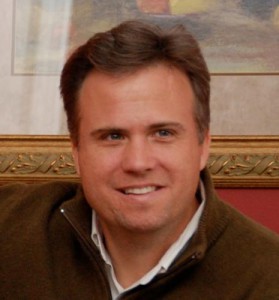Are you working in peacebuilding, international development or human rights?
Would you like to improve the strategic impact, quality and effectiveness of your operations?
Would you like to ensure effective monitoring and evaluation for your projects?
World renowned expert Kai Brand Jacobsen will be in London this April to run two programmes for practitioners working in peacebuilding, international development, violence prevention, human rights and related fields.
The details of the programme can be found on the following links, together with information on Kai.
1. Improving Strategic Impact, Quality and Effectiveness in Peacebuilding & Peace Support Operations
Executive Leadership Programme
16th – 18th of April, 2012, London, UK
Fee: GBP 495 (includes course fee, preparation materials, certification)
Special discount: Early Payment, Multiple Participants, Two Courses Taken Together
Improving Strategic Impact is a three-day Executive Leadership Programme (ELP) designed for senior practitioners, peacebuilding experts, and heads of agencies working in peacebuilding and peace support operations.
This includes:
crisis management; violence prevention; mediation, peacemaking and peace processes during armed conflict; peacebuilding and development; post-war recovery and reconciliation; and demobilization, disarmament and reintegration programmes.
The course draws on best practices in programme and strategic planning and design. It is a highly practical, hands-on training to help organisations, agencies and governments improve the quality, impact and effectiveness of their programmes and operations.
2. Designing & Implementing Effective Monitoring and Evaluation for Peacebuilding and Conflict Transformation Programmes, UN Missions & Post-War Recovery & Rebuilding
Executive Leadership Programme
19th – 21st of April, 2012, London, UK
Fee: GBP 495 (includes course fee, preparation materials, certification)
Special discount: Early Payment, Multiple Participants, Two Courses Taken Together
This is a three-day Executive Leadership Programme designed for senior practitioners, monitoring & evaluation units, field staff, and heads of agencies working in peacebuilding and peace support operations. This includes:
crisis management; violence prevention; mediation, peacemaking and peace processes during armed conflict; peacebuilding and development; post-war recovery and reconciliation; UN missions; and demobilization, disarmament and reintegration programmes
The programme has been designed to assist organisations, agencies and missions in the field to see how to develop appropriate monitoring & evaluation systems and processes customized for their exact needs and contexts.
Kai Frithjof Brand-Jacobsen
Director, Department of Peace Operations – PATRIR
Kai Frithjof Brand-Jacobsen is an international expert in strategic planning, mediation and peace processes, violence prevention, infrastructure for peace (I4P) and post-war stabilisation and recovery. Kai consults widely for governments, foreign ministries, and international and national organisations. He works as an advisor to several governments and international and national agencies, including the OSCE, the Commonwealth Secretariat, and the UK All-Party Parliamentary Group on Conflict Issues. He is a co-founder and President of the Peace Action, Training and Research Institute of Romania (PATRIR).
Further information and links:
Kai Brand Jacobsen
Kai's TED talk
PATRIR wins World Vision International Peace Prize.
Tip of the Hat to Berto Jongman.






